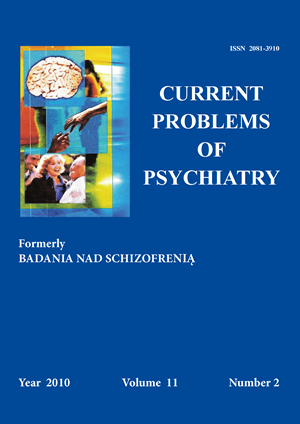Nadekspresja biomarkerów stresu środowiskowego w komórkach nabłonka kanalików nerkowych jako wynik proapoptotycznego działania adriamycyny:ocena immunohistochemiczna
Słowa kluczowe:
biomarkery stresu komórkowego, HSP70, p-53, nerki, apoptoza, immunohistochemiaAbstrakt
Wprowadzenie: W poprzednich pracach autorzy oceniając komórki nabłonka kanalików nerkowych po terapii adriamycyną (antybiotykiem przeciwnowotworowym) wykazali wzmożoną ekspresję proapoptotycznej, efektorowej kaspazy 3 oraz histologiczne zmiany w komórkach typowe dla apoptozy. Adriamycyna wywołuje cytotoksyczność uszkadzając DNA komórkowe oraz działając przez wolne rodniki powstające podczas jej biodegradacji.
Celem obecnej pracy była ocena wczesnej odpowiedzi komórki na uszkadzające działanie adriamycyny. Zbadano nerki szczurów poddanych uprzednio terapii adriamycyną, w których oceniono przy użyciu standardowej trójstopniowej metody immunohistochemicznej ekspresję białek HSP70 i p-53. Białka te znane są jako czułe biomarkery stresu komórkowego.
Wyniki i dyskusja: Wyniki badań wykazały, że komórki badane w niniejszym doświadczeniu odpowiedziały na działanie adriamycyny uszkadzające DNA zwiększoną syntezą białka-53, zaś na stres tlenowy wywołany przez wolne rodniki – nadekspresją HSP70. Wzmożona produkcja HSP70 w komórce narażonej na stres jest niezwykle pożądanym mechanizmem ochronnym. Z drugiej jednak strony HSP70 blokuje przeciwnowotworowe działanie p-53.
Wnioski: Może okazać się, że inhibitory HSP70 stosowane razem z adriamycyną przyczynią się do skuteczniejszej terapii tym lekiem.
Bibliografia
1. Pedrycz A, Boratyński Z, Olesiński I, Dudzińska M. Immunohistochemical assessment of renal tubular epithelial cell death after anthracyclines therapy. Bull Vet Inst Pulawy. 2009; 53: 719-724.
2. Pedrycz A, Boratyński Z, Drelich G. Apoptotic index and histological assessment of renal tubular epithelial cells during anthracycline-induced apoptosis. Influence of time. Bull Vet Inst Pulawy. 2010; 54: 55-58.
3. Demidenko ZN, Vivo C, Halicka HD, Li CJ, Bhalla K, Broude EV, Blagosklonny MV. Pharmacological induction of HSP 70 protects apoptosis-prone cells from doxorubicin: comparison with caspase-inhibitor-and cycle-arrest-mediated cytoprotection. Cell Death Differ 2006; 13: 1434-1441.
4. Drzewoski J, Robak T. Clinical pharmacology of anticancer drugs, Warsaw: Nauka, 1991.
5. Hsu YL, Kuo PL, Tzeng WS, Lin CC. Chalcone inhibits the proliferation of human breast cancer cell by blocking
cell cycle progression and inducing apoptosis. Food Chem Toxicol. 2006; 44: 704-13.
6. Kaeser MD, Iggo RD. Chromatin immunoprecipitation analysis fails to support the latency model for regulation of p53 DNA binding activity in vivo. Proc Natl Acad Sci USA. 2002; 99: 95-100.
7. Smith O. Cancer. Nota bene: The killer instinct of a p-53 target. Science. 2000; 290: 67.
8. Chmielewski M, Linke K, Zabel M, Szuber L. Apoptosis in the liver. Gastroent Pol 2003; 10: 453-462.
9. Yoo JL, Janz DM. Tissue-specific HSP70 levels and reproductive physiological responses in fishes inhabiting a metal-contaminated creek. Arch Environ Contam Toxicol 2003; 45: 110-20.
10. Schmitz I, Kirchhoff S, Krammer PH. Regulation of death receptor-mediated apoptosis pathways. Int J Biochem Cell Biol. 2000; 32: 1123-36.
11. Berthiaume JM, Oliveira PJ, Fariss MW, Wallace KB. Dietary vitamin e decreases Doxorubicin-induced oxidative stress without preventing mitochondrial dysfunction. Cardiovasc Toxicol 2005; 5: 257-268.
12. Żylicz M, King FW, Wawrzynow A. HSP 70 interactions with the p 53 tumor supressor protein. EMBO J 2001; 20: 4634-4638.


